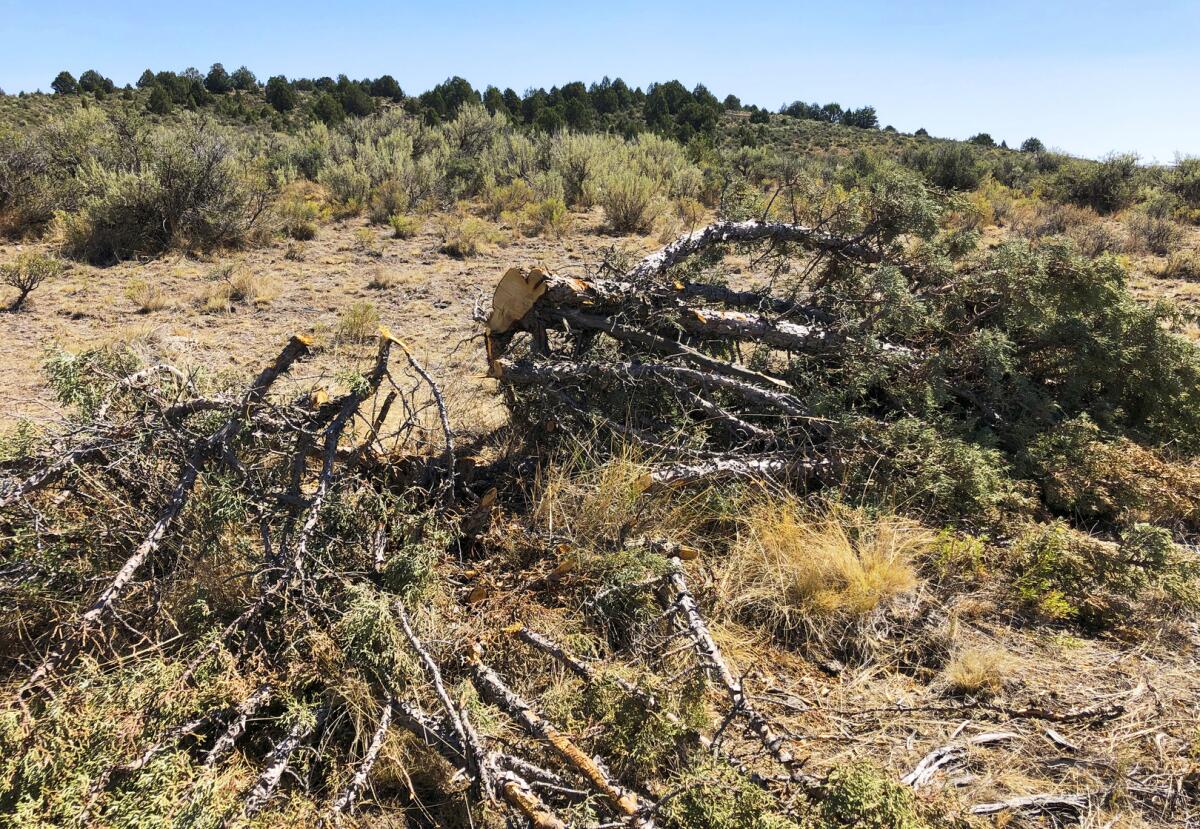Letters to the Editor: Pinyon-juniper woodlands aren’t ‘invasive,’ they’re recovering

- Share via
To the editor: Those who choose to ignore history will one day have to relive it. The proposal for Nevada and the U.S. Bureau of Land Management to tear out juniper and pinyon pine forests to make methanol for fuel is a case in point.
In the latter part of the 19th century, miners clear-cut thousands of these venerable and ancient trees to make charcoal for smelters. Consequently, many hills were turned into badlands, while other areas needed more than a century to recover. Native animal populations were decimated and brought to the brink of extinction.
Knowing this, is it prudent to have a repeat performance and destroy what is left of our heritage?
Furthermore, it’s unwise to remove carbon from sequestered storage in trees and convert it to methanol. We are sacrificing trees hundreds of years old and turning them into fuel.
Global warming is here, and it will get worse if we keep repeating past mistakes. Our forests are our bulwark protecting our very existence. We, in turn, must be their voice, or a dark pall will descend upon them.
Ted Urbanski, Santa Ana
..
To the editor: If ever there was a perfect illustration as to why we are doomed as a species, the proposal in Nevada to cut down pinyon pines and junipers would have to be it.
In a time when excess carbon is dangerously warming the atmosphere and human destruction of habitat is dooming thousands of species to extinction, along comes the most breathtakingly stupid proposition I have ever heard: to cut down hundreds of thousands of acres of native juniper and pinyon trees — which capture carbon, give off oxygen, shade the soil, retain water, prevent erosion and provide food and habitat for native species — and use them to feed our inexhaustible demand for energy.
Do people really believe that humans are somehow not dependent on functioning natural systems? I am sorry to say that they will soon learn the folly of that belief.
Pat Veesart, Santa Margarita



